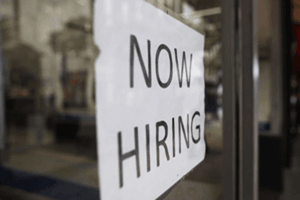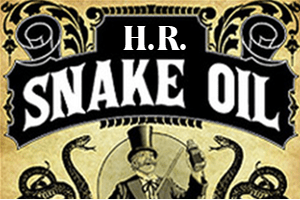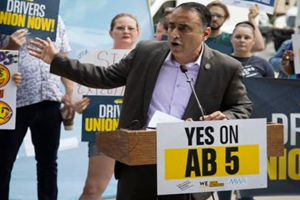
 Does an employer’s chat-bot want you to do a video interview with an AI-based robo-interviewer that will interpret the results with “intelligent” facial recognition and predictive analytics — so an algorithm can “decide” whether you qualify for a real interview with a personnel jockey who knows nothing about the work you do?
Does an employer’s chat-bot want you to do a video interview with an AI-based robo-interviewer that will interpret the results with “intelligent” facial recognition and predictive analytics — so an algorithm can “decide” whether you qualify for a real interview with a personnel jockey who knows nothing about the work you do?
Gizmodo’s Brian Merchant reports that Applying for Your Next Job May Be an Automated Nightmare. And he gives you everything you need to tell that employer where to stick it and why.
News I want you to use
Companies like Citibank, l’Oreal, Danone, and PricewaterhouseCoopers are using VCV, a digital recruiting AI bot, to abuse job applicants without the overhead of a personnel jockey’s time. Urban Outfitters, Intel, Honeywell, and Unilever use another bot: HireVue. Those two “AI” firms have $1.7 million and $93 million in venture backing. Another recruiting bot vendor, AllyO, has $19 million in backing.
And they’re all ready to interview you in absentia. And you should consider whether it’s worth wasting your time.
HR explains robo-interviewer hiring
Wonder why HR departments are so screwed up? Because HR consultants tell them they’re in business to save money. Gizmodo reports why HR managers want you to talk to a robo-interviewer:
“’AI in human resources is cost-effective and better for business overall,’ Barbara Van Pay, the CEO of SmartHR Consultancy, writes in Entrepreneur Magazine. Van Pay points to a 2016 Society of Human Resource Management survey that found the average cost-per-hire was $4,129. AI, she reasons, could whittle that figure away. ‘With many of the AI recruitment and Human Resources programs available offering tailor-made packages on a monthly, quarterly, and yearly subscription basis, it’s not hard to see that you can save a pretty hefty penny by transitioning to AI technology solutions.’”
The article gives no indication that Van Pay is human.
“Shitty automation”
Gizmodo explains why HR really uses that robo-interviewer, quoting Aaron Rieke, Managing Director of Upturn, a Washington, DC think tank that promotes equity and justice in the design, governance, and use of digital technology:
“But these startups [HireVue, VCV, AllyO, among others] risk offering a prime example of shitty automation—an automated product adopted in the name of saving money, that risks, in the end, just making everybody’s lives worse. In this case, the automation is designed to benefit one side of the equation almost exclusively: the employer.”
This seems to be the latest explanation about Why cattle-call interviewing doesn’t work.
How you can use this news
If an employer suggests you should subject yourself to abuse by its AI HR bots, you can cite Reike — when you tell the employer where to stick it. Just send over a link to Rieke’s stunning expose of automated, AI-based hiring.
He shared some of his concerns with Gizmodo:
“Human biases have long plagued hiring, and any claim that machine learning algorithms alone can fix that is bogus… It has been reported that VCV uses facial recognition to identify candidates’ ‘mood’ and ‘behavior patterns’ to help recruiters assess ‘cultural fit.’ This raises all kind of red flags… Facial recognition technology is often less accurate for women and darker-skinned people. Even assuming companies like VCV can evaluate ‘mood’ or ‘behavior,’ it’s not clear how that should help a recruiter assess candidates… We need a lot more information about how systems like these are designed and tested. Until that happens, I’m extremely skeptical. The hype is way ahead of the facts.”
Just because a top VC firm like Sequoia funds it, and just because HR saves a “hefty penny” using it, doesn’t mean you shouldn’t tell an employer where to stick it.
Read more in Gizmodo. To see how the robo-interview shoe might fit on the other foot, see Interview ON: How to interview for 1,500 jobs.
Have you been subjected to robo-interviews? How’d it go?
: :



 Dr. Robert Cialdini: The Psychology Powering Influence and Persuasion
Dr. Robert Cialdini: The Psychology Powering Influence and Persuasion
















 When we don’t understand our company’s greater purpose, we view work as an item on a to-do list–a means to an end — and don’t feel motivated.
When we don’t understand our company’s greater purpose, we view work as an item on a to-do list–a means to an end — and don’t feel motivated.



 Does an employer’s chat-bot want you to do a video interview with an AI-based robo-interviewer that will interpret the results with “intelligent” facial recognition and predictive analytics — so an algorithm can “decide” whether you qualify for a real interview with a personnel jockey who knows nothing about the work you do?
Does an employer’s chat-bot want you to do a video interview with an AI-based robo-interviewer that will interpret the results with “intelligent” facial recognition and predictive analytics — so an algorithm can “decide” whether you qualify for a real interview with a personnel jockey who knows nothing about the work you do?